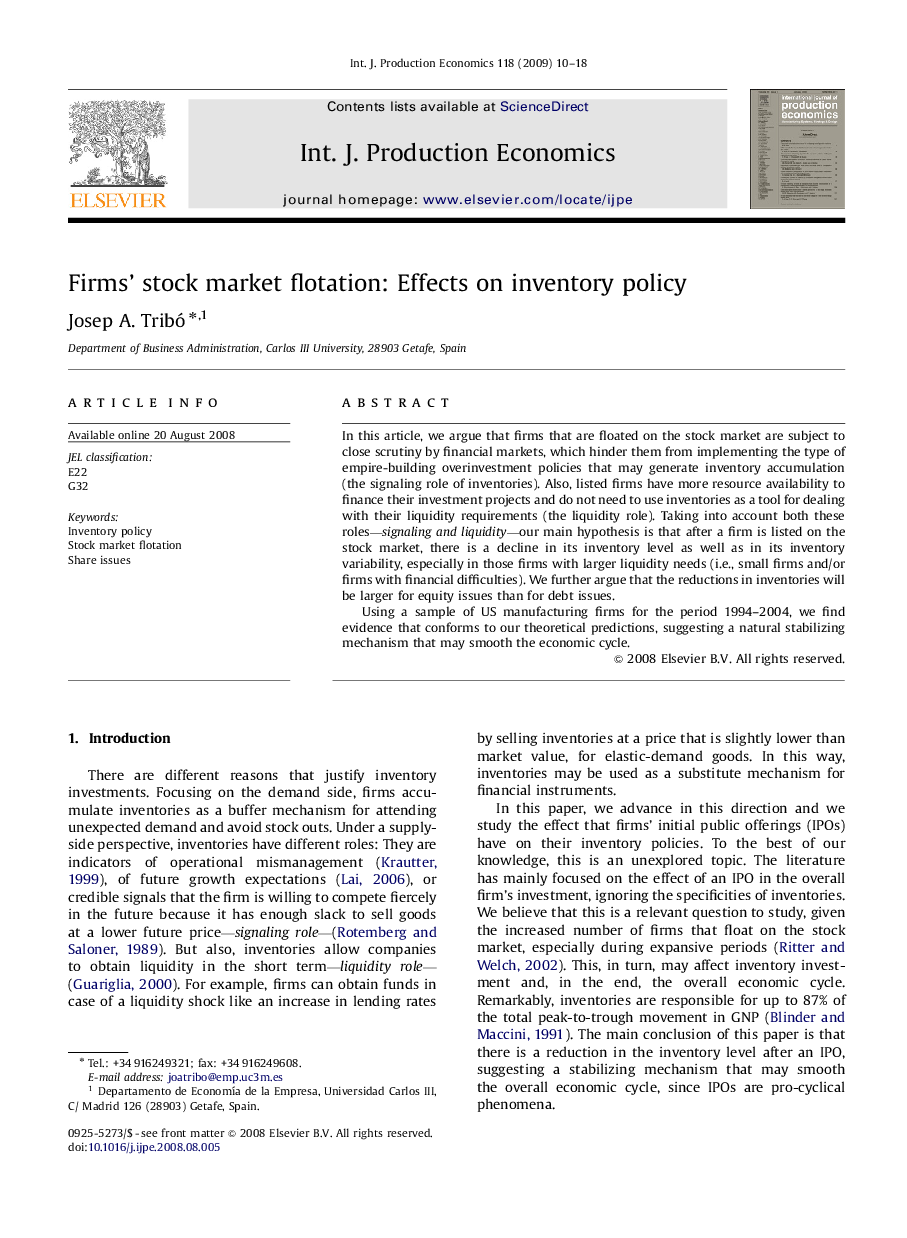| کد مقاله | کد نشریه | سال انتشار | مقاله انگلیسی | نسخه تمام متن |
|---|---|---|---|---|
| 5081940 | 1477625 | 2009 | 9 صفحه PDF | دانلود رایگان |

In this article, we argue that firms that are floated on the stock market are subject to close scrutiny by financial markets, which hinder them from implementing the type of empire-building overinvestment policies that may generate inventory accumulation (the signaling role of inventories). Also, listed firms have more resource availability to finance their investment projects and do not need to use inventories as a tool for dealing with their liquidity requirements (the liquidity role). Taking into account both these roles-signaling and liquidity-our main hypothesis is that after a firm is listed on the stock market, there is a decline in its inventory level as well as in its inventory variability, especially in those firms with larger liquidity needs (i.e., small firms and/or firms with financial difficulties). We further argue that the reductions in inventories will be larger for equity issues than for debt issues.Using a sample of US manufacturing firms for the period 1994-2004, we find evidence that conforms to our theoretical predictions, suggesting a natural stabilizing mechanism that may smooth the economic cycle.
Journal: International Journal of Production Economics - Volume 118, Issue 1, March 2009, Pages 10-18